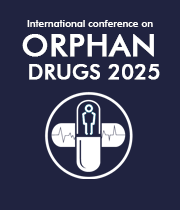Genetics and Epigenetics
Rare diseases induced by changes in single genes' function can be chronically debilitating and life-threatening. From symptom analysis to molecular aetiology assessment, genomics is driving a fundamental shift in rare disease diagnosis. Understanding the biological foundation of disease can lead to better treatment and care, with predictable, evidence-based outcomes.
Epigenetics is the study of heritable and persistent changes in gene expression caused by chromosomal changes rather than DNA sequence changes. Epigenetic mechanisms can affect gene expression by chemical alterations of DNA bases and changes to the chromosomal superstructure in which DNA is packaged, despite not directly modifying the DNA sequence. Epigenetic mechanisms are a variety of gene-control systems that operate independently of genetic sequences. Epigenetics is the study of a variety of "readers," "writers," and "erasers" who play important roles in development, health, and disease. Epigenetics' role in rare diseases is one of its most essential aspects.
- Epigenetic Mechanism
- Genomic Analysis
- Post-Translational Modifications
- Clinical Significance
- Sequencing
- Gene Discovery
- Genetic and Genomic Studies
- Novel Computational Approaches

Sergey Suchkov
The Russian University of Medicine & Russian Academy of Natural Sciences, Russian Federation
Vladlen Slepak
University of Miami, United States
Harsha Rajasimha
Jeeva Clinical Trials, Inc, United States
Vladlen Slepak
University of Miami, United States
Harsha Rajasimha
Jeeva Clinical Trials, Inc, United States
Sergey Suchkov
The Russian University of Medicine & Russian Academy of Natural Sciences, Russian Federation


Title : Emerging solutions for inclusive orphan drug clinical trials management
Harsha Rajasimha, Jeeva Clinical Trials, Inc, United States
Title : Ectopically expressed olfactory receptors as an untapped family of drug targets. Discovery of agonists and antagonists of OR51E1, an understudied G protein-coupled receptor
Vladlen Slepak, University of Miami, United States
Title : Personalized and Precision Medicine (PPM) as a unique healthcare model to secure the human healthcare and biosafety among childhood
Sergey Suchkov, The Russian University of Medicine & Russian Academy of Natural Sciences, Russian Federation
Title : Orphan and rare disease emerging as a global public health priority through the view of personalized and precision medicine: How to use the latter to revolutionize pediatric services
Sergey Suchkov, The Russian University of Medicine & Russian Academy of Natural Sciences, Russian Federation
Title : Personalized and Precision Medicine (PPM) though the view of reproductive healthcare, pediatric services and natural family planning: an option for clinicians and caregivers realize the potential of genomics-informed care to secure the individualized human biosafety
Sergey Suchkov, The Russian University of Medicine & Russian Academy of Natural Sciences, Russian Federation
Title : Democratizing ASO drug discovery at La Jolla Labs
Melissa Keenan, La Jolla Labs, United States